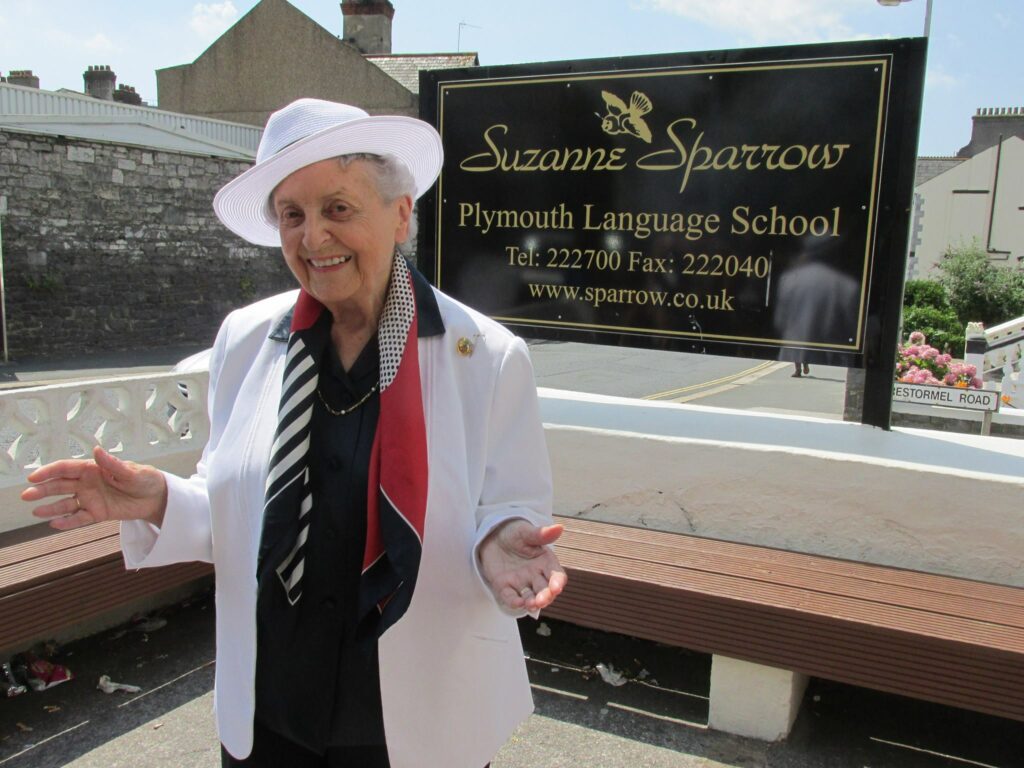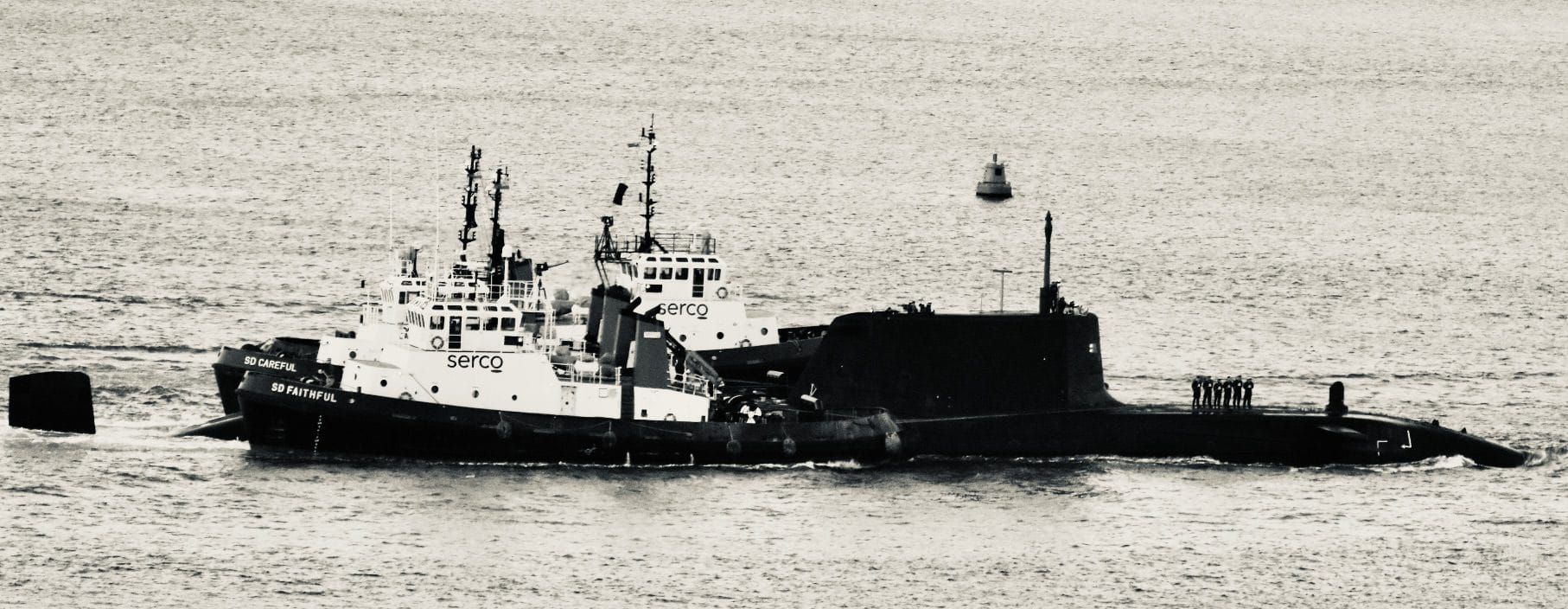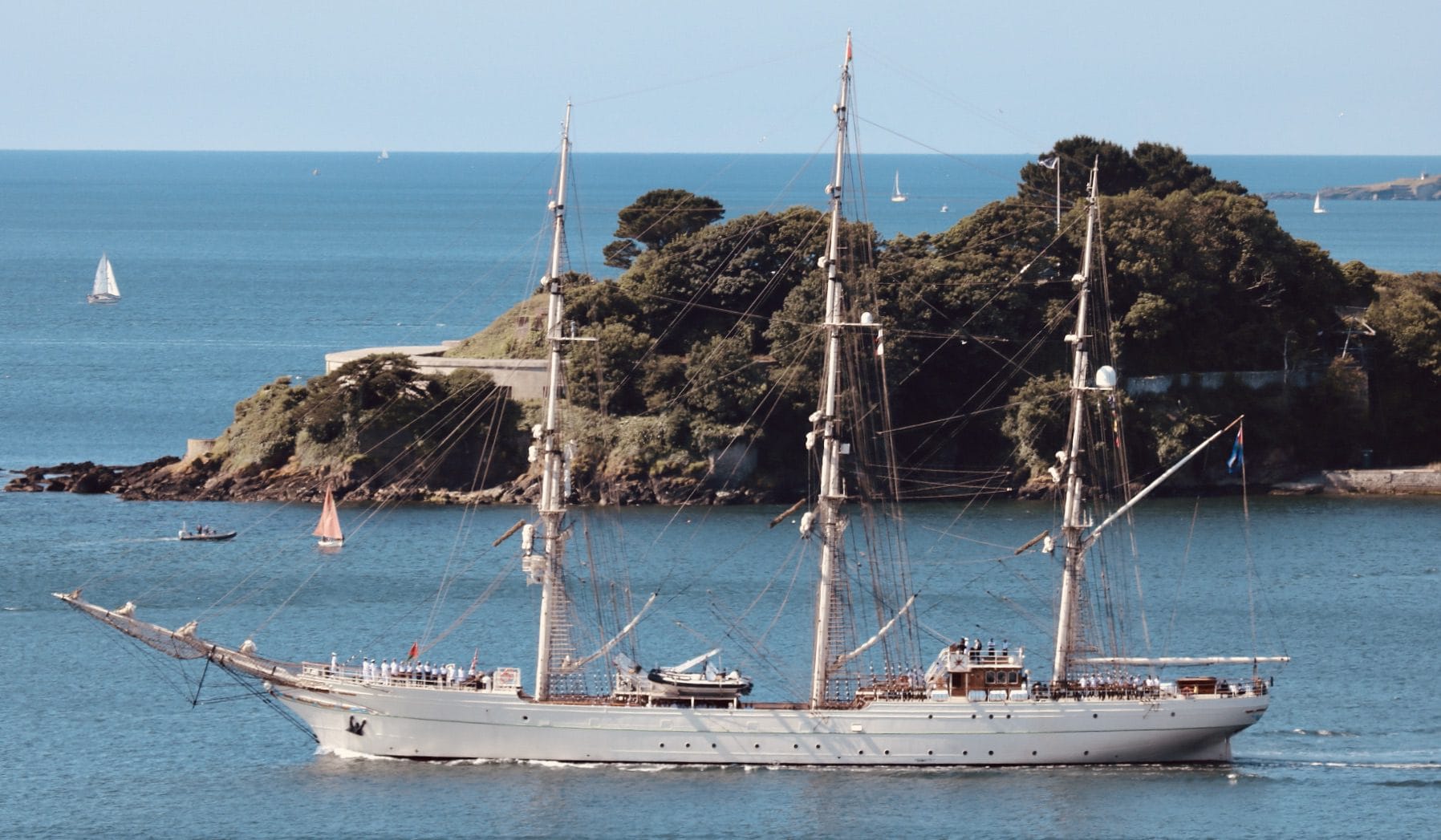The crew at Westward Shipping News and Dorcas Media would like to wish Dr. Suzanne Sparrow a happy 100th birthday and celebrate one of Plymouth’s famous business leaders.
Dr. Sparrow featured in one of our first spotlight columns and talks about her life and role in the city. And it’s worth a read again, if you missed the blog the first time around.
Spotlight on Dr. Suzanne Sparrow.
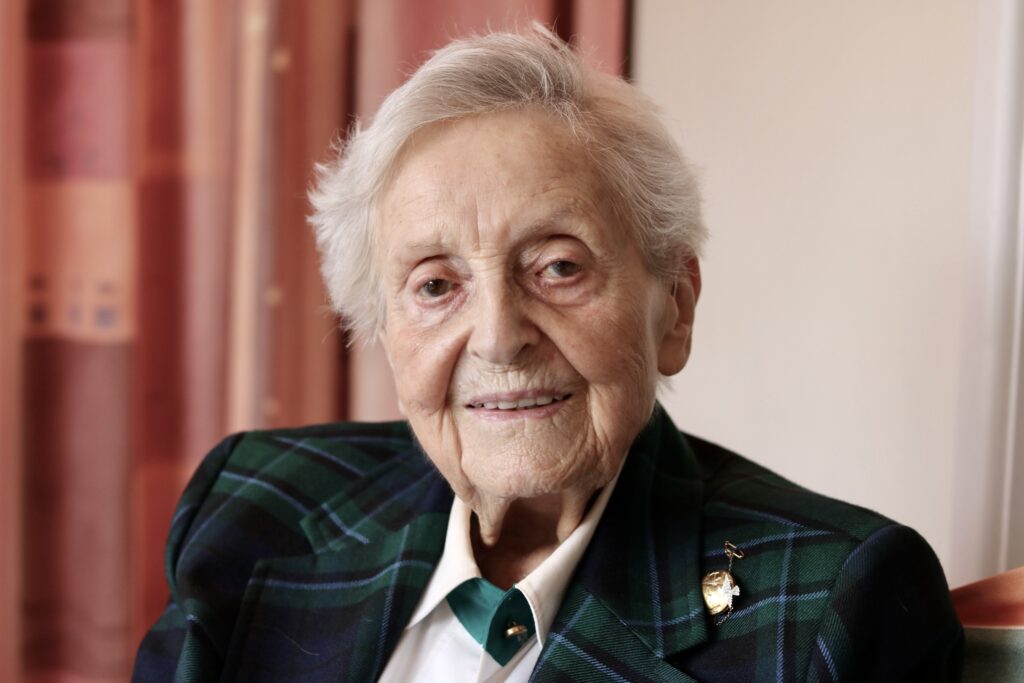
Born just off Mutley Plain in 1924, she was educated at Gunnerside School for Girls, located in North Road East, Busy Bees Primary School in Mutley, and then Plymouth High School for Girls until 1941.
Her first jobs were administrative and secretarial after learning shorthand and typing, but she soon got very bored and was a determined volunteer, aged 17, to join the Royal Navy and do her bit for the war effort, especially witnessing the destruction of Plymouth, and losing her home in the Blitz of 1941.
Suzanne Sparrow (Cole) undertook her tough training at HMS Drake, learning all about knots and drills and becoming a trained seaman and coxswain based at Flag Staff Steps and then Number 4 Basin.
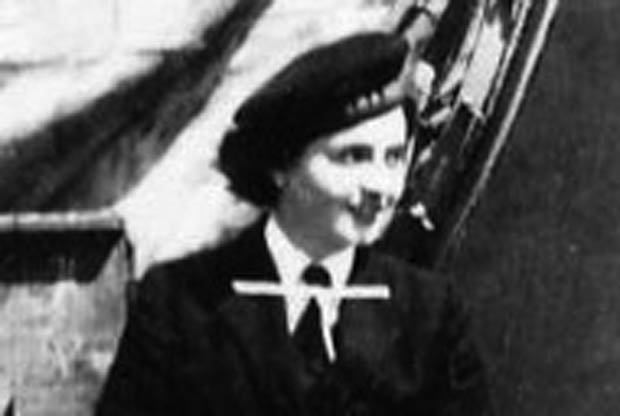
“We were at war, but it was really exciting working out from the Flag Staff Steps in the Dockyard to the Landing Craft base for the construction, care, and maintenance of many of the small boats used for D-Day, as well as the training and embarkation point for troops that sailed to Normandy.”
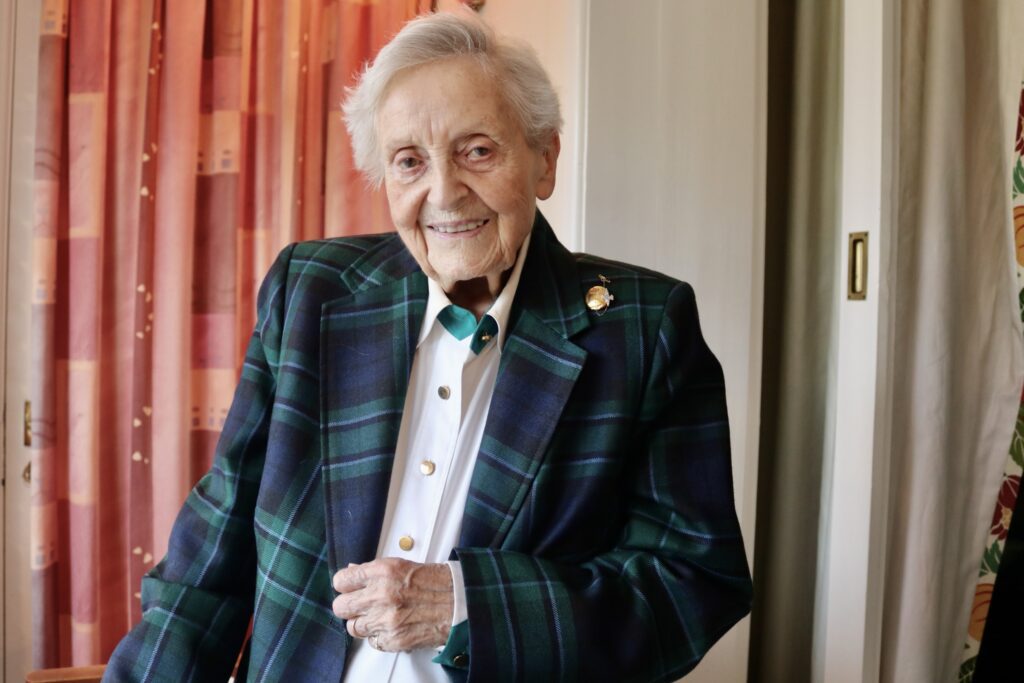
“Looking back at my time in the Second World War, I am immensely proud of the role our Wren Boat’s Crews played, and especially the part HMS Drake and Devonport undertook in the D-Day landings of June 1944,” she said.
After the war, Suzanne met her husband, Bernard Sparrow, who was a top British scientist at the marine paint and research testing laboratory on the River Yealm in the late 1940s. They married and had two children.
In the mid 1970s, she decided to set up her own English Language School following workshop sessions organised by Brittany Ferries to encourage trading links between the Plymouth and Brittany regions, which was the catalyst for starting her business venture.
“I had no business experience, didn’t speak a foreign language, and in those days women found it hard to borrow from a bank, but that didn’t stop me.”
Suzanne launched her linguistic enterprise in 1978 at the Plymouth Arts Centre on the Barbican and eventually moved to new premises a decade later, on North Road East. For more than 40 years her language school has generated over £40 million+ to the local economy.
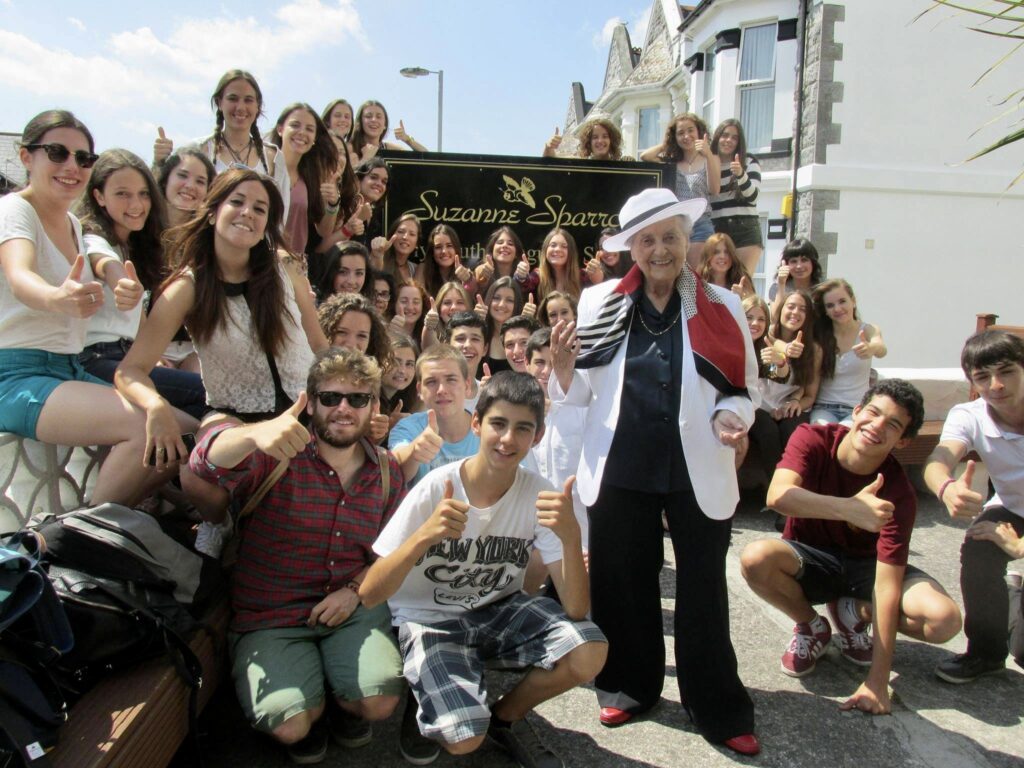
Dr. Suzanne Sparrow is a massive advocate of international trade. She created the first export desk at the Plymouth Chamber of Commerce in 1988 and was chair for over a year.
I was extremely proud to take the first Plymouth and South West delegation to Brussels and Strasbourg to promote commercial and trading links with the EU.

She was awarded an educational doctorate by the University of Plymouth and honoured with two lifetime achievement awards by the Plymouth Herald Business Awards in 2016, and the Plymouth Chamber of Commerce Awards the same year.
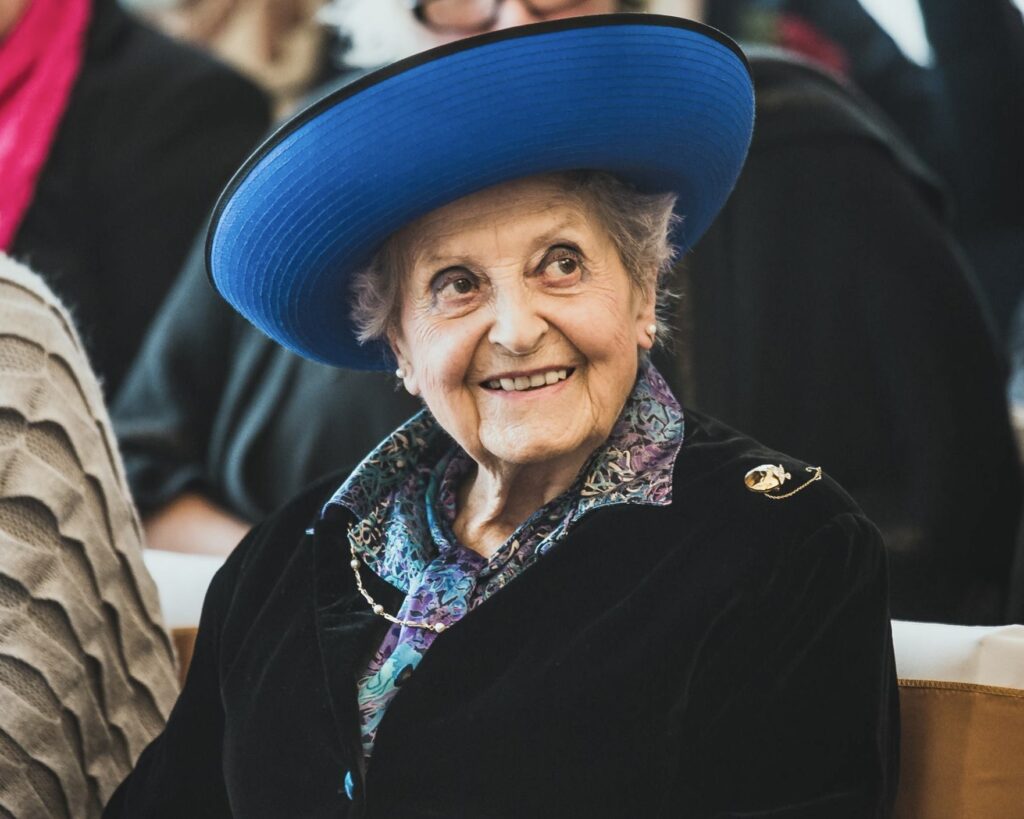
Q&As
How does your day begin?
I normally start with two cups of tea in a leisurely manner these days. My daughter, Hilary Desvernay, is now the Principal of the school, but I still like to be involved.
What does it mean to be an effective business leader in the changing world of English language learning, since Brexit?
The UK’s place as a destination market for English language courses has been in flux for a while, and the government needs to be more interested in one of our greatest soft power exports, British English.
In your life experience of living nearly 100 years, how do you see the future of Plymouth?
The city is starting to look outward again, and its destiny will always be in the global marketplace for trading opportunities.
What three things would you tell your younger-self if you could travel back in time?
Be yourself! Don’t be afraid to try new things, and especially the importance of education.
If you had any business advice, what would it be?
Find a niche, and if you think it’s marketable, go for it!
What do you most love about Plymouth?
Our famous and beautiful waterfront, and most of all, its people.

